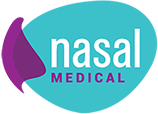Allergies are just around the corner…
As we near the end of Winter, it’s fair to say that Summer isn’t too far from our thoughts on these bitter cold mornings. It seems like only yesterday that we said goodbye to another Hay Fever season here in Nasal Medical, and now we find ourselves thinking about 2021 allergy season. World Allergy Week takes place on April 24th, and this year we want to help you manage your allergies by sharing top tips, and answering your many questions ahead of the peak allergy season. We will be enlisting the help of experts in the allergy field (pardon the unintentional pun!) to offer advice and tips for the 2021 Allergy Season. If this is something that you dread every year, we want to help, and there are lots of ways to make it through the season without cancelling every single outdoor plan!
How to prepare for the Allergy Season in advance:
- Identify your allergy
Firstly, you need to identify what your allergy is, if you don’t know already. There are so many Allergy Clinics all over Ireland that can carry out an allergy test showing if your allergies are pollen, dust, pet hair etc, or a combination of all. Our friends in Allergy Ireland carry out allergy tests, contact them for more info HERE.
2. Know your symptoms
Being aware of your symptoms is essential coming up to allergy season. Itchy/runny eyes? Sneezing? By knowing the difference between allergies and a common cold you’ll be able to treat these symptoms accordingly, and more effectively.
3. Know when the allergy season begins, reaches it’s peak, and ends.
Pollen allergies tend to begin in March, and peak in June/July, while ragweed allergies begin late August- November, with the peak hitting in September. By knowing key allergies timelines you’ll be in a better position to be prepared and avoid any unwanted allergy attacks.
4. Prevention is better than cure – look to alternatives!
‘An ounce of prevention is better than a pound of cure’.
When we chat to our customers, they’re keen to try a drug-free alternative to allergy medication, which can sometimes have negative side effects. Our Allergy Nasal Filter is a discreet and comfortable filter which is placed inside the nose to block pollen, & other allergens, thus preventing allergies taking hold. It’s a great alternative to medication as it’s drug-free, easy to use, and effective. It is safe to use in pregnancy as it doesn’t contain any medication. You can get more info by clicking HERE.
5. Take note of these tips daily
There are some tips that I’ve picked up over my 20 years of Hay Fever suffering!
- Prevent with Allergy Nasal Filter – this has been a God-send for me since I joined the Nasal Medical team. I am always sure to have a box in my bag in case pollen spikes!
- Keep an eye on pollen counts every day so you can be prepared
- Always have your supplies at hand – whether it’s your Nasal Filter, Eye drops, nasal spray or tablet – be ready!
- If pollen levels are high don’t dry your clothes outdoors & keep windows shut
- During peak pollen season have a shower at night & wash your clothes and hair to ensure you’re not inhaling pollen at night.
- Don’t cancel your plans because of your allergies – but do think ahead. Pack what you need, keep an eye on pollen levels, and wear a Nasal Filter to block allergens entering your nose!
To finish…
So, as we are nearing the end of January (YAY!), we thought it was time to think about Allergies. We hope you found this useful!
As always we would love to hear your feedback so please get in touch!
Until next time,
Elisha @Nasal Medical
